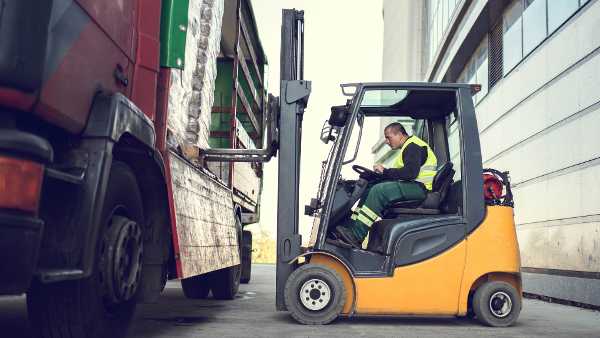How to import olive oil
- Marcel Hoebink
- The basis
- Edited 19 August 2025
- 5 min
- Managing and growing
- International
You are on a well-deserved Mediterranean holiday when you come across a delicious, mild olive oil that you think would be a huge success in the Netherlands. You want to import it, but how do you go about it? Find out what the rules are when importing olive oil.
Olive oil is mostly used as a foodstuff, and edible olive oil imports are subject to European food safety requirements. There is also specific legislation for olive oil, laying down requirements that different types of olive oil must meet. There are different procedures for importing olive oil, depending on whether you want to import it from an EU country such as Italy or a non-EU country like Morocco.
Olive oil as a foodstuff
If you browse the shelves of your local supermarket or delicatessen, you will probably come across various types of olive oil, such as ‘virgin’ and ‘extra virgin’. Olive oil is also used as lamp oil, but this article is only about edible olive oil.
Product requirements for foodstuffs
Food safety requirements apply to any foodstuffs entering the EU market. The olive oil you import has to comply with the European food legislation. Traceability throughout the supply chain is an important part of this legislation: you need to know where your olive oil came from and to whom you supplied it. This way you can quickly withdraw unsafe products from the market if necessary.
The article on Importing foodstuffs lists the general requirements for all foodstuffs, including rules on food hygiene, labelling, and the presence of harmful substances.
Specific legislation for olive oil
Olive oil is subject to specific European legislation, which deals with the packaging and labelling of olive oil, the typical characteristics of olive oil, and more. This legislation can be found on the European Commission's website.
Organic olive oil
If you import organic olive oil, additional rules apply. For example, you will need to have your business certified by Skal Biocontrole (in Dutch), an independent organisation that oversees the entire organic value chain in the Netherlands. Organic foodstuffs from non-EU countries must meet standards equivalent to those applicable to organic foodstuffs produced in the EU.
Useful agencies and authorities
The following agencies provide more information on product requirements and import regulations:
-
The Centre for the Promotion of Imports from Developing Countries (CBI) helps exporters from developing countries export goods to the European market. The CBI also publishes useful market information for importers and provides information about the European product requirements for olive oil.
-
Access2Markets from the European Commission provides information on import regulations for products imported from outside the EU. For guidance on how to use this tool, visit the website.
Video: Want to know the rules when importing? Use Access2Markets
Importing goods from EU countries
There is free movement of goods in the EU, which means that you do not have to pay import duties when importing olive oil from Italy, Spain, Greece, or any other EU member state. Your supplier in the other EU country will charge 0% , if you pass on your VAT identification number. Calculate Dutch VAT (9%) on the purchase and report it in your VAT return, before deducting it as input tax in the same return.
Exception for Northern Ireland
Northern Ireland is part of the United Kingdom but still follows EU trade and customs rules since Brexit. You do not pay import duties and you do not file a customs declaration if you import from Northern Ireland. VAT rules are the same as when trading with other EU countries.
Standard steps of importing into the Netherlands
Importing a product from abroad involves more work than buying a domestic product. You can make a successful start to importing goods if you know enough about the importing process. This step-by-step plan will guide you.
Importing goods from non-EU countries
When you import olive oil from a non-EU country such as Tunisia or Morocco, you have to file an import declaration with Dutch Customs. Usually, your forwarder will arrange this import declaration for you. They charge a fee for this. Often, they also advance any import duties and import VAT. You will also need an EORI number. This identification number is mandatory when dealing with the Customs Administration of the Netherlands. An import declaration and EORI number are not required when importing from Northern Ireland.
Make proper arrangements with your forwarder about how their goods will be shipped and how you will pay for them. Willeke and Saskia Borman of Fuego B.V., an importer of AED devices and first-aid materials, explain how they import goods from non-EU countries.
Import duties
If you import olive oil from a non-EU country, you have to pay import duties, which makes your product more expensive. Import duty rates are linked to the ten-digit commodity code or TARIC code of the olive oil you are importing.
The commodity code for ‘extra virgin olive oil’ in containers of less than five litres, for example, is 1509 2000 10, while the commodity code for ‘virgin olive oil’ in containers of less than five litres is 1509 3000 10. Both types of olive oil are subject to an import duty of €124.50 per 100 kg. For more commodity codes and import duty rates for olive oil, go to the Tariff Manual of Dutch Customs and open the Nomenclature tab. Find out how to look up commodity codes and import duties.
Trade agreements and lower import duties
You usually pay less or no import duties if you import olive oil from a country with which the EU has a trade agreement, or a special arrangement. The olive oil must be of preferential origin from the treaty country. This means that the olives used must have been grown in that country. You can demonstrate this with a preferential certificate or declaration of origin from your supplier. For example, you do not pay import duties on olive oil of preferential origin from Morocco. The reduction in import duties for olive oil does not apply to all countries with which the EU has a trade agreement or special arrangement.
Preferential tariff quota
There is a ‘preferential tariff quota’ for olive oil from some treaty countries. This applies to Tunisia, Algeria, Jordan, Lebanon, and Chili. The EU has agreed a trade regime for agricultural products with Turkey and a preferential tariff quota also applies to olive oil from Turkey. This means the EU sets a maximum import quantity for a certain period. The EU sets a maximum quantity of olive oil that you can import with import duty relief in any given period of time. You must have a preferential document of origin or preferential declaration of origin from your supplier. If you have reached the maximum quantity linked to the tariff quota or do not have a preferential certificate or declaration of origin, you will have to pay the higher import duty rate.
In the Tariff Manual, under the 'Tariff Quota' tab, you can see whether there is still space within a tariff quota or whether the quota has already been exhausted. If you cannot figure it out yourself, call the Customs Information Line.
Import certificate AGRIM
Are you importing olive oil from Tunisia and using the preferential tariff quota? If so, you will need a special import certificate from (in Dutch), as well as an origin document or declaration. First check with RVO whether space is still available within the tariff quota and ask about the conditions for applying for an import certificate.


